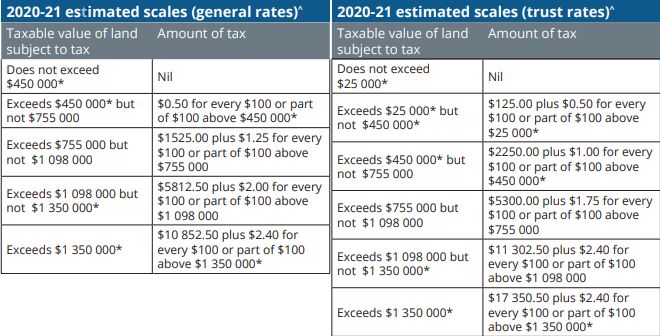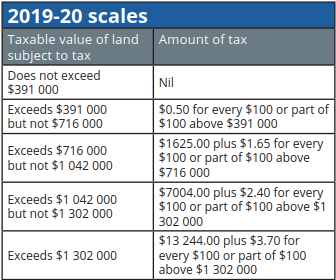26 March 2020
As you would be aware, things have changed significantly around Australia with the recent announcements of enforced closing of some businesses and other restrictions imposed by the Government to stop the spread of COVID-19. These restrictions could be extended to a total lockdown at any time so we must all be prepared and take action as soon as possible.
It is going to be a very tough time for all of us business owners over the next 6 to 12 months and some of us will be affected more than others, but we want to reassure you that the team at i2 Advisory are
here and will be working overtime to ensure we are supporting all of our clients.
The key Government website that you need to be aware of is https://treasury.gov.au/coronavirus
It contains very useful Fact Sheets and information for business owners and individuals (perfect for your employees).
Below are 5 urgent things you need to be aware of:
- Updated Government Stimulus Package – Our tax planning meeting with you this year will be VITAL!
- Helping your employees that you have to stand down – Fact Sheets for you to use
- Business continuity planning – immediate MUST DO actions
- Get your Will and EPOA updated / set up NOW
- Our ongoing support for you as your accountants and advisors
1. UPDATED GOVERNMENT STIMULUS PACKAGE – OUR TAX PLANNING MEETING WITH YOU THIS YEAR WILL BE VITAL!
The Australian Government has just updated its economic stimulus package,which now totals $189 billion. The package has been marketed as a measure to provide timely support to affected workers, businesses and the broader community.
The updated key tax and stimulus measures include:
Cashflow Assistance for Businesses
- Tax-free payments of up to $100,000 for eligible small and medium businesses (i.e., with a turnover of less than $50 million that employ staff) and not for profit organisations based on their PAYG withholding obligations. This is not a cash payment, but it is a credit in the activity statement system equal to 100% of the PAYG amounts withheld from salary and wages paid to employees.
- These payments will only be available to active eligible employers established prior to 12 March 2020, and you simply need to have employees for whom you withhold tax on wage payments.
- First payment of up to $50,000 – Businesses that lodge activity statements on a quarterly basis will be eligible to receive the credit for the quarters ending March 2020 and June 2020. Businesses that lodge on a monthly basis will be eligible for the credit for the March 2020, April 2020, May 2020 and June 2020 lodgements.
- Second payment of up to $50,000 – To qualify for this additional payment, the business must continue to be active. Businesses that lodge activity statements on a quarterly basis will be eligible to receive the credit for the
quarters ending June 2020 and September 2020. Businesses that lodge on a monthly basis will be eligible for the credit for the June 2020, July 2020, August 2020 and September 2020 lodgements. - If a business pays salary and wages to employees but is not required to withhold any tax, then a minimum payment of $10,000 will be made upon lodgement of the March 2020 activity statement. A second minimum payment of $10,000 will be made, split between the June 2020 and September 2020 quarters.
- Wage subsidies to support the retention of apprentices and trainees – employers with less than 20 full-time employees may be entitled to apply for Government funded wage subsidies amounting to 50% of an apprentice’s or trainee’s wage for up to nine months from 1 January 2020 to 30 September 2020. The maximum subsidy for each apprentice/trainee is $21,000.
Business Investment
- From Thursday 12 March 2020, the instant asset write-off threshold has been increased from $30,000 (for businesses with an aggregated turnover of less than $50 million) to $150,000 (for businesses with an aggregated turnover of less than $500 million) until 30 June 2020.
- A time-limited 15-month investment incentive (through to 30 June 2021)
has also been introduced, which will operate to accelerate certain depreciation deductions. This measure will also be available to businesses with a turnover of less than $500 million, which will be able to immediately deduct 50% of the cost of an eligible asset on installation, with existing depreciation rules applying to the balance of the asset’s cost. As announced, this measure is proposed to only apply to new depreciating assets first used, or installed
ready for use, by 30 June 2021.
Temporary Relief for Financially Distressed Businesses
- These measures are designed to give a safety net for businesses to ensure that when this crisis has passed, they can resume normal business operations. It includes lessening the threat of actions that could unnecessarily push them into insolvency and force the winding up of
the business. They include:- A temporary increase in the threshold at which creditors can issue a statutory demand on a company and the time companies have to respond to statutory demands they receive.
- A temporary increase in the threshold for a creditor to initiate bankruptcy proceedings, an increase in the time period for debtors to respond to a bankruptcy notice, and extending the period of protection a debtor receives after making a declaration of intention to present a debtor’s petition.
- Temporary relief for directors from any personal liability for trading while insolvent.
Business Lending Guarantee
- The Government will provide a guarantee of 50% to Small and Medium Enterprise lenders for new unsecured 3 year loans of up to $250,000 per borrower to be used for working capital. These loans will be up to three years, with an initial 6 month repayment holiday.
- The loans will be in the form of unsecured finance, meaning that borrowers will not have to provide an asset as security for the loan.
- Loans will be subject to lenders’ credit assessment processes with the expectation that lenders will look through the cycle to sensibly take into account the uncertainty of the current economic conditions.
- The scheme will commence by early April 2020 and be available for new loans made by participating lenders until 30 September 2020.
Individual Assistance
- Tax-free payments of $750 to social security, veteran and other income support recipients and eligible concession card holders. It is estimated that around half of those who will benefit will be pensioners. These payments will automatically be made from 31 March 2020.
We can help
We are trying to contact all clients to assist you with opportunities to restructure how you pay yourself so that you can receive the maximum cashflow assistance amounts from the Government.
Contact us TODAY if you would like to discuss the options available to ensure you receive your maximum Cashflow assistance from the Government.
2. HELPING YOUR EMPLOYEES THAT YOU HAVE TO STAND DOWN
With the recent requirements that many businesses are to be temporarily closed, you may have to stand down many of your employees from their employment.
The good news is that the Government is providing support for individuals to assist them in the next 6 months.
The Government has expanded the access to the Jobseeker Payment and the Youth Allowance Payment so that the following people affected by the Coronavirus can receive them, commencing 27 April 2020:
- permanent employees who are stood down or lose their employment
- sole traders
- self employed
- casual workers
Please refer to the fact sheets below for an excellent summary of what individuals are entitled to. We recommend providing these to your employees.
Income support for Individuals –
https://treasury.gov.au/sites/default/files/2020-03/Fact_sheet-Income_Support_for_Individuals.pdf
Payments to support households –
https://treasury.gov.au/sites/default/files/2020-03/Fact_sheet-Payments_to_support_households.pdf
Temporary early release of Superannuation –
https://treasury.gov.au/sites/default/files/2020-03/Fact_sheet-Early_Access_to_Super_1.pdf
3. BUSINESS CONTINUITY PLANNING – IMMEDIATE MUST DO ACTIONS
You need to quickly decide whether your business can continue to trade or if it needs to temporarily close or reduce its operations.
During this period cash is king therefore you should be forecasting future cash flows and at the same time look at how you can preserve cash resources:
- Delay tax payments to the ATO – it is vital that you keep lodging your Business Activity Statements (BAS’s) by the due dates and negotiate with the ATO. The ATO is implementing a series of relief options to assist those businesses impacted by COVID-19, this relief will not be automatic so the ATO will need to be contacted.
- Contact your landlord and request an immediate reduction in your rent
- Reduce costs where possible
- Contact your bank asap to:
- Arrange for additional bank funding/ lines of credit that can be approved now for future use
- Request deferrals of loan and lease repayments
- Apply for the new government guaranteed small business loans of up to $250,000
- Review your staffing requirements, everyone is suffering and needs to tighten up in the short term, so we all have to work together:
- Do you have to reduce working hours of some employees
- Decide if you should offer unpaid leave on a roster basis
- Look at the option of a stand down of their employment for the short term
4. GET YOUR WILL AND EPOA UPDATED / SET UP NOW
If you have to self-quarantine or are admitted to hospital, if you don’t have an Enduring Power of Attorney (EPOA) then no-one else can make important business or financial decisions on your behalf.
As a business owner, it is 100% essential that you have an up to date EPOA and Will, and that your family know where these are stored.
5. OUR ONGOING SUPPORT
We are currently operating split shifts with the majority of our team working from their homes.
We want to reassure you that we have 100% capacity to continue helping you and your business.
Please continue to phone our office number 08 8132 6400 or the mobile number of your Accountant you’ve been working with for assistance. Also, you can always email us for instant support at admin@nulli2advisory.com.au
Our team at i2 Advisory is here to help you. Please do not hesitate to contact us should you require any assistance!







